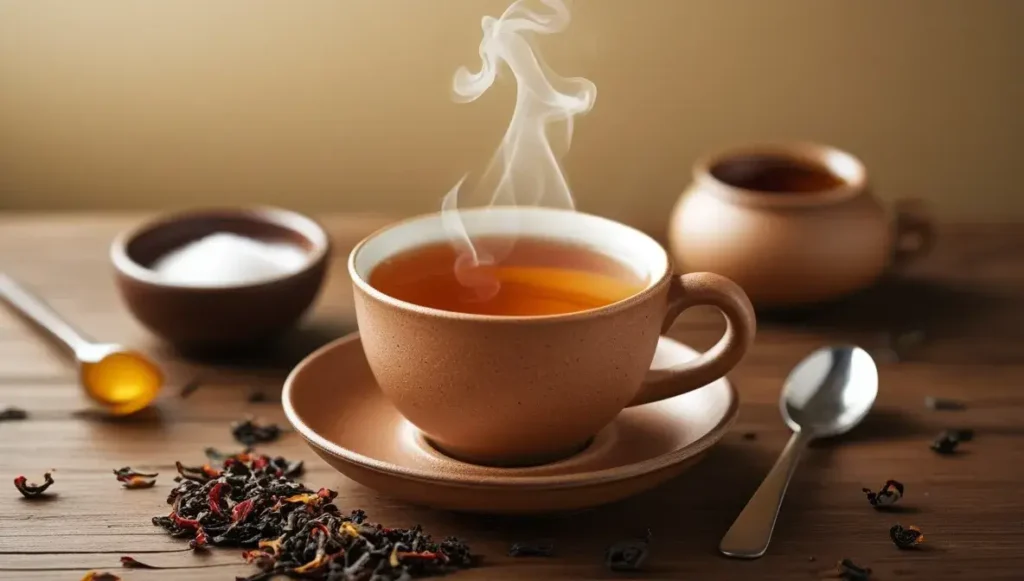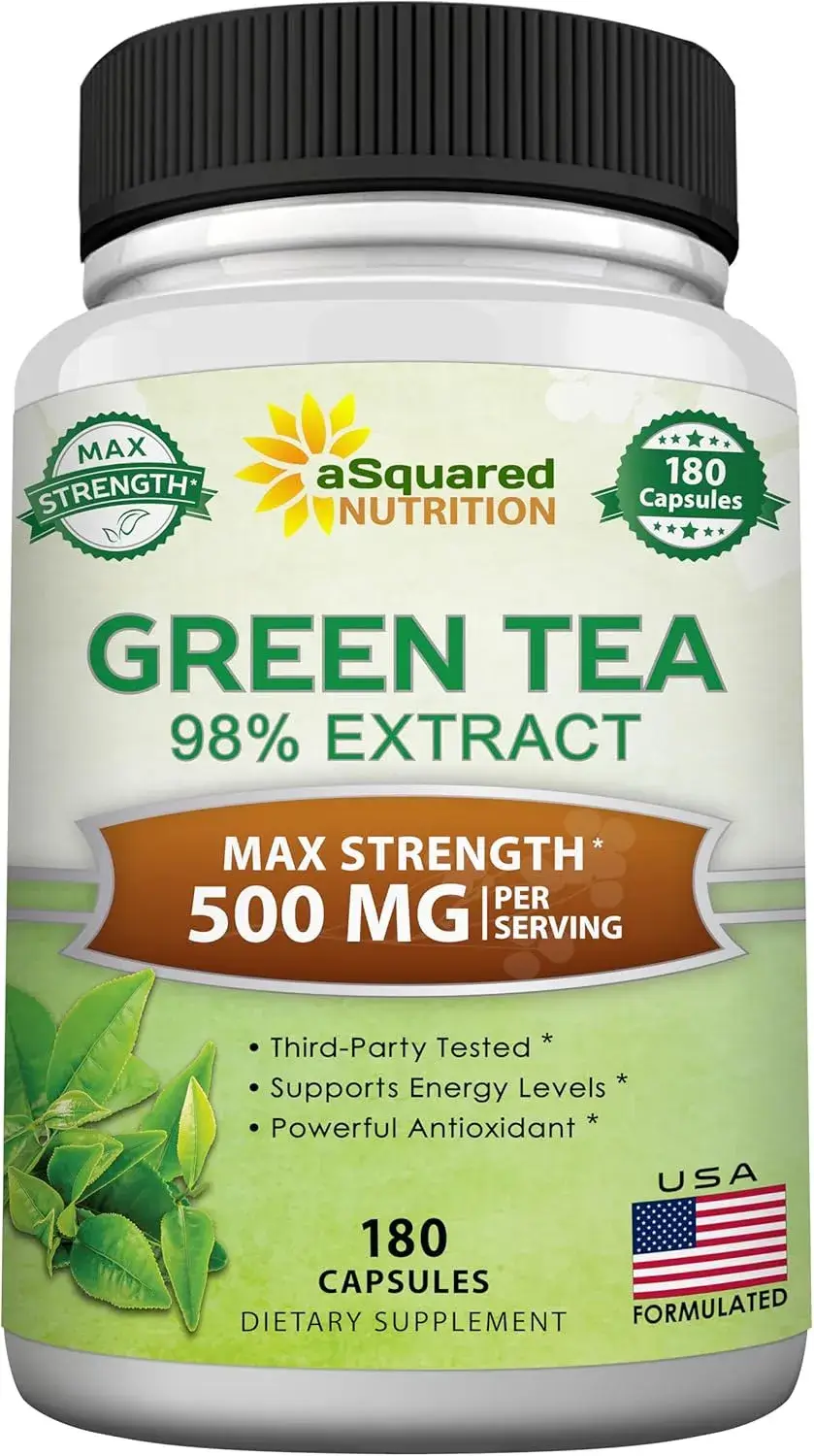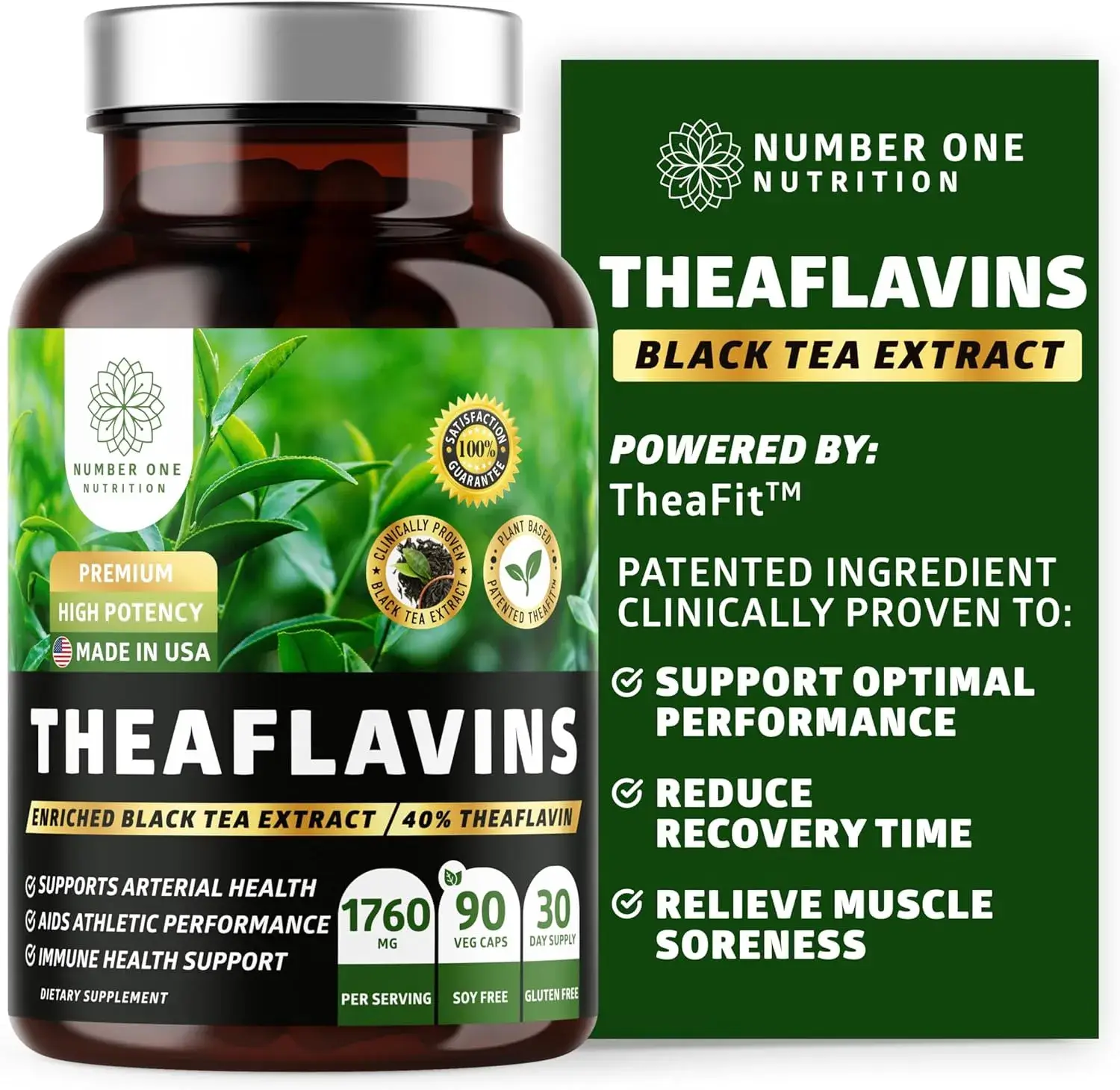Table of Contents
Rooibos tea benefits and side effects have become a hot topic for health enthusiasts seeking natural alternatives to traditional beverages. This herbal tea, rich in antioxidants like aspalathin and quercetin, offers numerous potential health advantages. However, despite its growing popularity, there are important considerations we should understand before making it a daily staple.
When examining rooibos tea health benefits, research suggests it may help prevent cancer cell growth and reduce inflammation by preventing the growth of angiotensin converting enzymes (ACEs). Additionally, this caffeine-free option can help people with diabetes control their blood sugar levels and supports weight management goals as it contains zero calories. Nevertheless, while many tout the benefits of rooibos tea, we must also acknowledge potential side effects. For instance, studies have identified rare cases of liver enzyme abnormalities and some compounds in rooibos leaves have shown estrogenic activity.
In this comprehensive guide, we’ll explore everything you need to know about this unique South African tea, from its impressive health properties to important precautions. Whether you’re a longtime fan or just discovering rooibos, you’ll find valuable information to make informed decisions about incorporating it into your wellness routine.
What is Rooibos Tea?

Rooibos, pronounced “ROY-boss,” isn’t your typical tea—it’s an herbal infusion made from the leaves of the Aspalathus linearis plant, a leguminous shrub native exclusively to South Africa.
Origin and traditional use in South Africa
The name “rooibos” comes from Afrikaans meaning “red bush,” referring to its distinctive reddish-brown color after processing. This unique plant grows only in one place on Earth—the Cederberg mountain region approximately 200 miles north of Cape Town, where the harsh climate, alternating dry and wet conditions, and acidic sandy soil create the perfect environment for its growth.
Although widely consumed today, rooibos has deep historical roots. Early records of its use date back to the late 19th century, with Dutch settlers brewing it since the 1700s. Traditionally, indigenous people would climb mountains to harvest the fine needle-like leaves from wild plants, then roll them into bundles and transport them down steep slopes using donkeys. By the 1930s, after Benjamin Ginsberg invented the curing process in 1904, commercial production began.
How it’s made: fermented vs unfermented
There are two main varieties of rooibos tea—traditional red rooibos and green rooibos. For red rooibos, after harvesting, the leaves are cut, bruised, and fermented in piles before drying in the sun. This oxidation process gives the tea its characteristic red-brown color and enhances its sweet flavor. Green rooibos, developed in the mid-1990s, skips the oxidation stage through immediate steaming and drying, preserving its natural green color and higher antioxidant content.
Is rooibos tea caffeinated?
Unlike traditional teas from the Camellia sinensis plant, rooibos is completely caffeine-free. This important characteristic makes it suitable for evening consumption, during pregnancy, and even for children. Furthermore, it contains significantly lower tannin levels compared to black or green tea, resulting in less bitterness even with extended brewing.
Taste and preparation methods
Rooibos offers a naturally sweet, slightly nutty flavor with hints of caramel and vanilla. The taste is smooth, gentle, and woody with a malted sweetness. Notably, unlike traditional teas, rooibos never becomes bitter regardless of steeping time.
For optimal brewing, use boiling water and steep for 5-10 minutes—longer steeping enhances the antioxidant effectiveness without causing bitterness. Rooibos can be enjoyed hot or iced, plain or with additions like milk, honey, lemon, or spices. Its versatility extends to lattes, cappuccinos, and even culinary recipes.
👉 Discover the Ultimate Rooibos Tea Blend Loved by Tea Experts 👈
8 Proven Health Benefits of Rooibos Tea
Beyond its distinctive taste, rooibos tea offers an impressive array of health benefits backed by scientific research. Let’s explore what makes this South African brew a powerhouse of wellness.
1. Naturally caffeine-free and sleep-friendly
Unlike traditional teas, rooibos contains virtually no caffeine, making it ideal for evening consumption without risking sleep disruption. The natural compounds in rooibos may actually promote better sleep by lowering cortisol (stress hormone) levels and triggering chemical reactions that calm the nervous system. Moreover, it contains minerals like magnesium which act as nature’s tranquilizer, encouraging deeper sleep.
2. Low in tannins, better for iron absorption
Rooibos contains only 4.4% tannins compared to the 11.5-17.5% found in black tea. This matters because tannins interfere with iron absorption, particularly from plant-based foods. Studies show that drinking rooibos results in 7.25% iron absorption, whereas black tea allows only 1.70%, making rooibos a superior choice for those monitoring iron levels.
3. Rich in antioxidants like aspalathin and quercetin
Rooibos is packed with unique antioxidants, including aspalathin (found nowhere else in nature) and quercetin. These compounds fight free radicals and reduce oxidative stress. Indeed, research confirms rooibos consumption can increase antioxidant levels in the body.
4. Supports heart health by lowering blood pressure
The tea helps inhibit angiotensin-converting enzymes (ACEs) that cause blood vessels to contract. In one 6-week study, participants experienced significantly lower LDL (“bad”) cholesterol (15.2%) and triglycerides (29.4%), while HDL (“good”) cholesterol increased by 33.3%.
5. May help regulate blood sugar levels
Aspalathin has shown potential in balancing blood glucose and improving insulin resistance. This makes rooibos particularly beneficial for people managing diabetes or at risk of developing it.
6. Aids in weight management
With zero calories, rooibos is perfect for weight management goals. The tea increases leptin (the fullness hormone), helping regulate appetite, consequently preventing overeating and assisting with weight control.
7. May reduce inflammation and oxidative stress
The anti-inflammatory compounds in rooibos, including quercetin, orientin, and vitexin, help fight chronic inflammation. A study on rats found rooibos significantly increased antioxidant enzymes and restored redox balance.
8. Potential skin benefits when applied topically
Rooibos contains alpha hydroxy acids and zinc, beneficial for skin health. When applied topically, it may reduce wrinkles, calm irritation, and help with eczema due to its anti-inflammatory properties.
Side Effects of Rooibos Tea You Should Know

While rooibos tea offers numerous health advantages, it’s essential to understand its potential drawbacks as well.
Rare cases of liver toxicity
Though uncommon, several documented cases link excessive rooibos consumption to liver problems. Medical literature reports instances of acute hepatitis, liver failure, and elevated liver enzymes in individuals consuming large quantities of rooibos tea. One 52-year-old male developed acute hepatitis and liver failure after regular consumption of rooibos tea. In another case, a 37-year-old patient scheduled for surgery showed liver toxicity and low platelet count from long-term, high-volume rooibos intake. Generally, symptoms resolved after discontinuing consumption.
Hormonal effects: estrogenic activity concerns
Compounds isolated from rooibos leaves have demonstrated estrogenic activity. In fact, studies show fermented rooibos significantly decreased ovary weight in test subjects. This raises potential concerns for individuals with hormone-sensitive conditions.
Does rooibos tea interfere with medications?
Absolutely. Rooibos can interact with medications metabolized by liver enzymes, specifically affecting CYP3A substrates. Notably, it may increase levels of atorvastatin, potentially amplifying side effects. Additionally, rooibos might enhance the effects of ACE inhibitors, causing increased side effects.
Who should not drink rooibos tea?
Primarily, pregnant or breastfeeding women should avoid rooibos due to insufficient safety data. Likewise, patients with hormone-sensitive cancers should exercise caution. Individuals with liver conditions or those taking medications metabolized by the liver should consult healthcare providers before consumption.
👉 Enjoy the Superior Flavor of Certified Organic Rooibos Tea 👈
How to Safely Enjoy Rooibos Tea

Now that we understand the potential benefits and drawbacks, let’s explore practical ways to incorporate rooibos tea into your daily routine safely.
How much rooibos tea should I drink a day?
Clinical studies suggest consuming up to 6 cups (approximately 1,400 mL) daily is safe for most adults. However, it’s worth noting that one case of hepatotoxicity occurred in a man who consumed 10 cups (2,400 mL) daily for over a year. Rather than immediately starting with high quantities, begin with 2-3 cups daily and gradually increase if desired.
Best times to drink rooibos
Rooibos makes an excellent morning beverage, offering a gentle start without caffeine. Subsequently, it works well as an afternoon pick-me-up. Primarily, rooibos shines as an evening drink, consumed a couple of hours before bedtime, as it may help promote quality sleep.
Tips for brewing the perfect cup
For optimal flavor, use 1.5 teaspoons of loose leaf tea per 8 ounces of water. Heat water to 208°F and steep for 5-7 minutes. Essentially, rooibos is forgiving—longer steeping enhances antioxidant content without becoming bitter. Consider adding honey, milk, lemon, or vanilla according to taste.
Choosing between red and green rooibos
Both varieties are caffeine-free and support similar health benefits. Green rooibos contains higher antioxidant levels, making it ideal for immune support. Meanwhile, red rooibos offers a naturally sweeter, nuttier flavor profile.
Final Thoughts on Rooibos Tea Benefits and Side Effects

Rooibos tea stands as a remarkable herbal beverage with numerous health advantages worth considering. Throughout this guide, we’ve explored how this South African treasure offers a caffeine-free alternative rich in unique antioxidants like aspalathin. The benefits certainly extend beyond its pleasant taste—from supporting heart health and regulating blood sugar to aiding weight management and reducing inflammation.
Nevertheless, we must remain aware of potential side effects. Though rare, liver toxicity cases have occurred with excessive consumption, and the tea’s estrogenic activity raises concerns for certain individuals. People taking medications should certainly exercise caution due to possible interactions.
Most adults can safely enjoy up to 6 cups daily, starting with smaller amounts and gradually increasing if desired. Whether you prefer the sweeter red variety or antioxidant-rich green rooibos, this versatile beverage fits perfectly into morning routines or evening wind-downs.
After all, making informed decisions about rooibos means balancing its impressive benefits against potential risks. This mindful approach allows us to incorporate this distinctive tea into our wellness routines effectively. The key lies in moderation—appreciating rooibos for its unique properties while respecting individual health circumstances and needs.
Key Takeaways
Rooibos tea offers impressive health benefits but requires mindful consumption to avoid potential risks.
- Rooibos is completely caffeine-free with unique antioxidants that support heart health, blood sugar regulation, and weight management
- Contains significantly lower tannins than black tea, allowing 7.25% iron absorption versus only 1.70% with black tea
- Rare but serious side effects include liver toxicity from excessive consumption and potential medication interactions
- Safe daily limit is up to 6 cups for most adults, but start with 2-3 cups and avoid if pregnant or taking liver-metabolized medications
- Choose green rooibos for higher antioxidants or red rooibos for sweeter flavor—both offer similar health benefits
While rooibos provides a valuable caffeine-free alternative with proven wellness benefits, moderation and awareness of individual health circumstances remain essential for safe enjoyment.
👉 Indulge in the Exclusive Rooibos Tea Trusted by Health Enthusiasts 👈
FAQs
Q1. What are the potential side effects of drinking rooibos tea? While generally safe, excessive consumption of rooibos tea may lead to rare cases of liver toxicity. There are also concerns about its estrogenic activity, which could affect hormone-sensitive conditions. It’s best to consume in moderation and consult a healthcare provider if you have any pre-existing health issues.
Q2. Is it safe to drink rooibos tea during pregnancy? Due to insufficient safety data, pregnant women are advised to avoid or limit rooibos tea consumption. It’s always best to consult with your healthcare provider before adding any herbal teas to your diet during pregnancy.
Q3. How much rooibos tea is safe to drink daily? Most adults can safely consume up to 6 cups (about 1,400 mL) of rooibos tea daily. However, it’s recommended to start with 2-3 cups and gradually increase if desired. Always listen to your body and consult a healthcare professional if you have any concerns.
Q4. What are the main health benefits of rooibos tea? Rooibos tea offers numerous health benefits, including being naturally caffeine-free, rich in antioxidants, supportive of heart health, and potentially helpful in regulating blood sugar levels. It may also aid in weight management and reduce inflammation.
Q5. Can rooibos tea interact with medications? Yes, rooibos tea can interact with certain medications, particularly those metabolized by liver enzymes. It may affect the efficacy of drugs like atorvastatin and potentially enhance the effects of ACE inhibitors. If you’re on any medication, it’s crucial to consult your doctor before regularly consuming rooibos tea.









![Jasmine Tea vs Green Tea Benefits: Which Gives Better Health Results? [2025] jasmine tea vs green tea benefits](https://www.goteaworld.com/wp-content/uploads/2025/09/jasmine-tea-vs-green-tea-benefits-150x150.webp)



